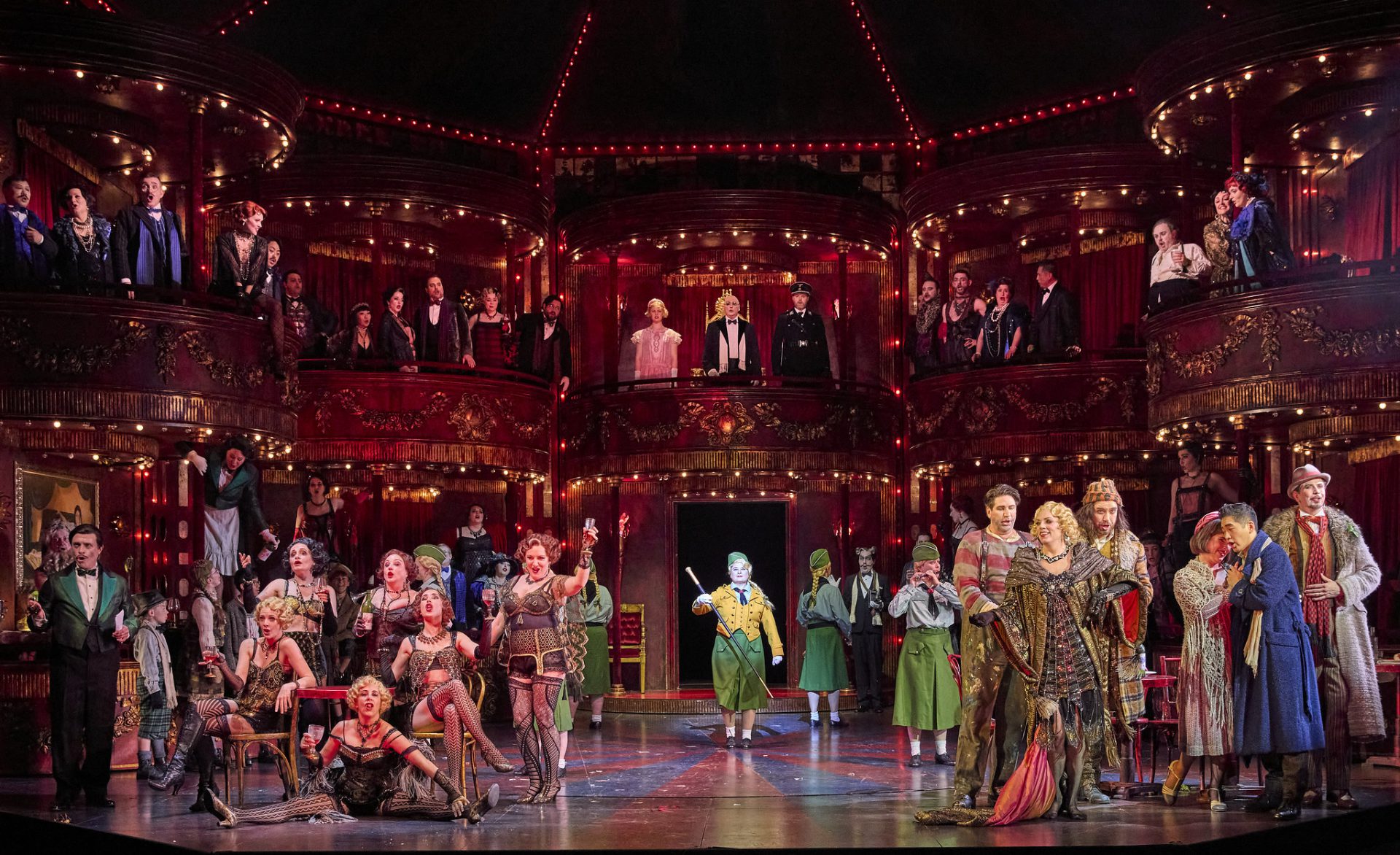A visceral revival with powerhouse performances.
Opera Australia’s latest staging of La Bohème breathes electrifying life into Puccini’s beloved classic. With the tale of struggling artists and doomed romance well known, this production is marked by emotionally potent performances, elegant direction, and some fantastic design work, making the show a memorable one.
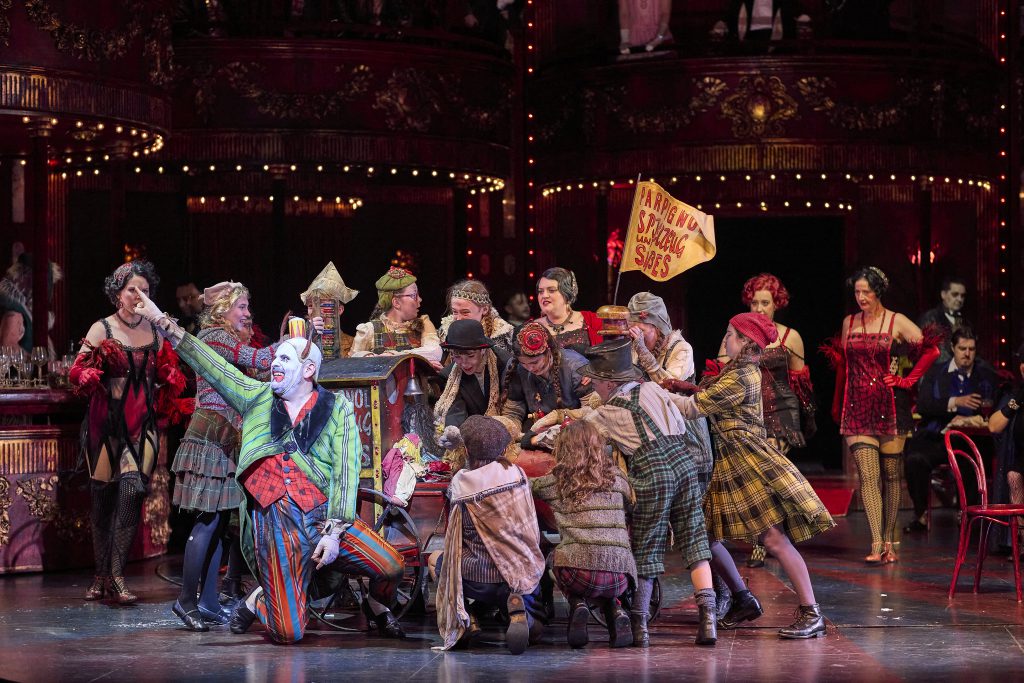
Set in 1830s Paris, La Bohème follows a group of young bohemians navigating love and poverty in the Latin Quarter. The opera centres on the tender but ill-fated romance between the poet Rodolfo (Kang Wang) and the seamstress Mimì (Olivia Cranwell), whose relationship is shadowed by illness and financial hardship. Alongside them are the passionate painter Marcello (Luke Gabbedy) and the flirtatious Musetta (Rachelle Durkin), whose fiery, on-again-off-again relationship adds both levity and volatility to the story. As friendships are tested and love falters under the weight of reality, the opera moves from the carefree nature of youth to the poignant stillness of loss well.
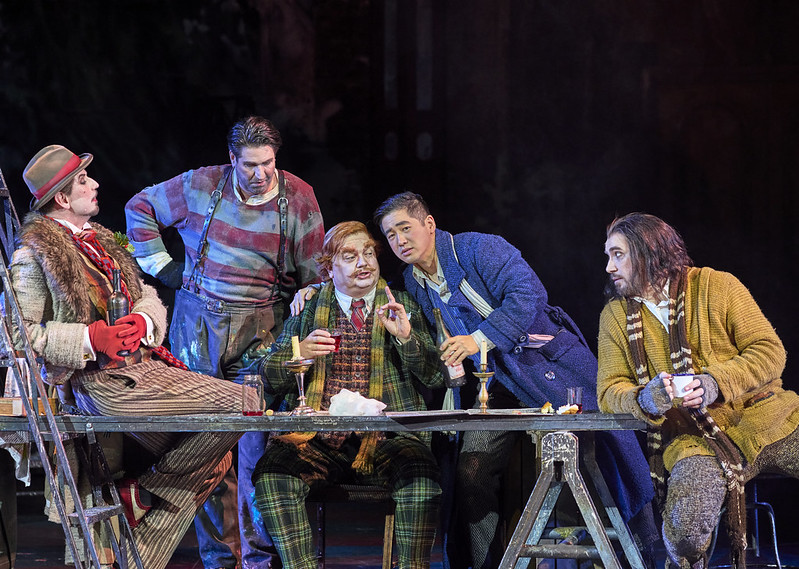
Soprano Cranwell is at the emotional core of this production. Her portrayal of Mimì is riveting, capturing her fragility and warmth with a nuanced emotional range. Cranwell’s luminous and expansive voice carries a quiet heartbreak that builds beautifully toward the opera’s devastating close, and her character’s confrontation with Rodolfo in Act III was a masterclass in emotional restraint, making the final moments of Act IV gutting.
Baritone Gabbedy delivers a standout performance as Marcello. He balances charm and volatility with ease, offering a grounded counterpart to the more romantic Rodolfo. His vocal command is undeniable, but it’s his ability to thread humour, frustration, and melancholy into a cohesive whole that makes his performance so compelling. His scenes with Musetta are performed with sass and add texture and levity.
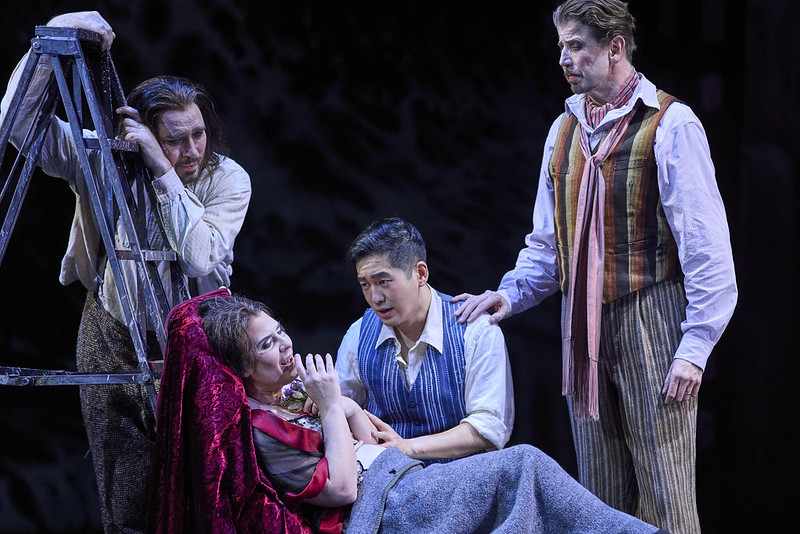
A highlight of the evening comes in the fourth act, when Wang delivers a deeply affecting rendition that marks a turning point. His voice soars with lyrical intensity, and in this climactic moment, he channels Rodolfo’s anguish and longing very well. It’s a performance that leaves the audience momentarily breathless and anchors the final act in raw emotional truth.
The musical direction under Erina Yashima is finely tuned and deeply responsive to the drama on stage. Yashima leads the orchestra with sensitivity and clarity, allowing Puccini’s lush score to rise and recede in all the right moments. The pacing is confident without ever overwhelming the singers, and there’s a palpable sense of connection between the pit and the stage. Her interpretation supports the emotional contour of each scene, heightening both the intimacy and intensity of the production with refined elegance.
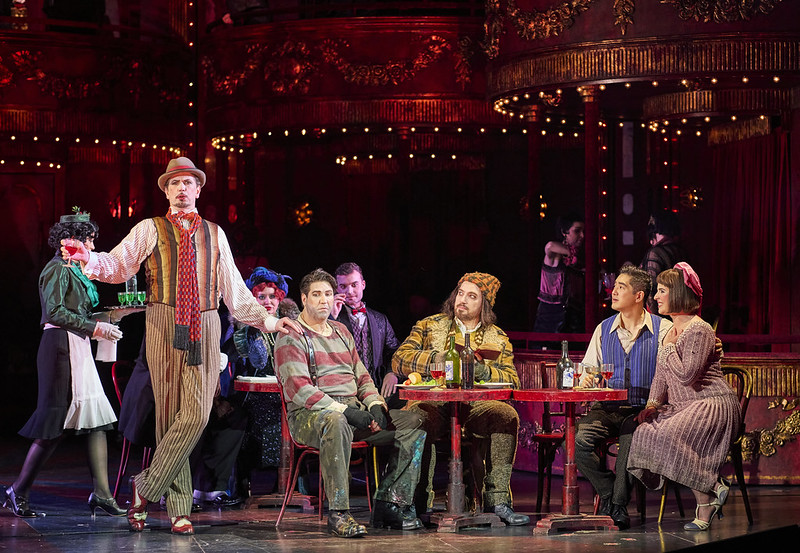
Visually, the production dazzles. The sets are dynamic and fluid, cleverly transitioning between bohemian apartments, festive cafés, and the snowy streets of Paris. There’s a real movement and energy in the design that keeps the eye engaged without distracting from the narrative. If there’s any room for critique, it lies in occasional moments of uneven pacing during the second act, where the production’s ambition slightly outpaces its cohesion. However, these minor slips are quickly overshadowed by the strength of the performances and the emotional payoff of the final act.
Ultimately, Opera Australia’s La Bohème is bold in execution, faithful in spirit, and emotionally devastating in all the right ways. With standout performances and expert conducting work, this production reaffirms why La Bohème remains one of opera’s most enduring and beloved masterpieces.
